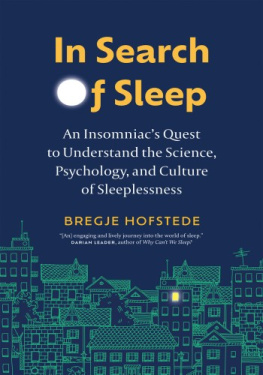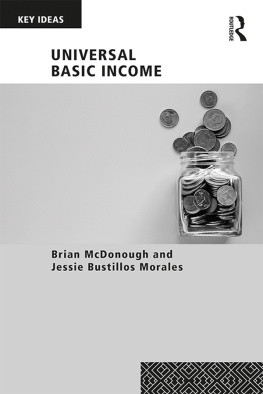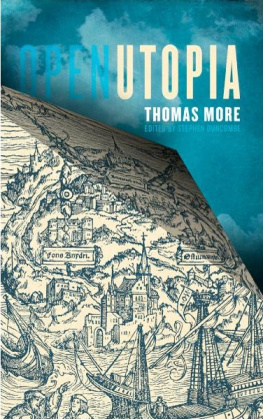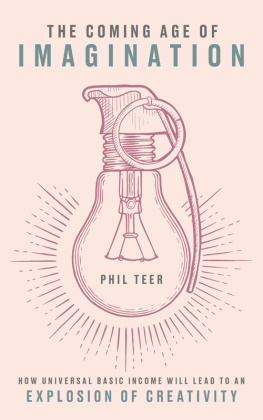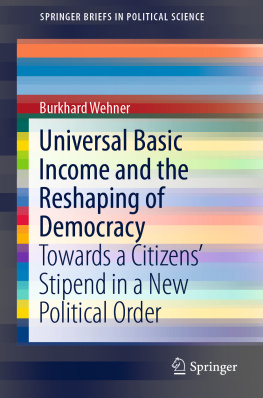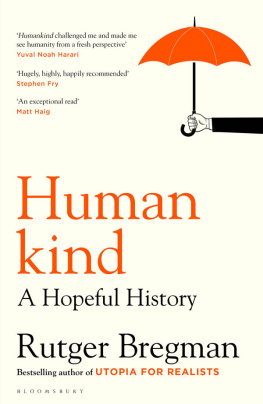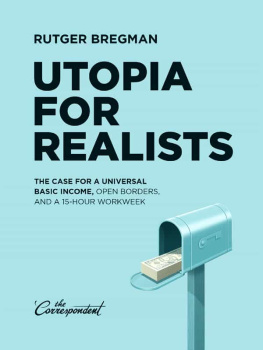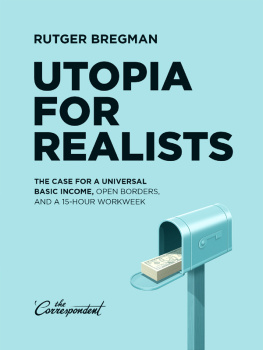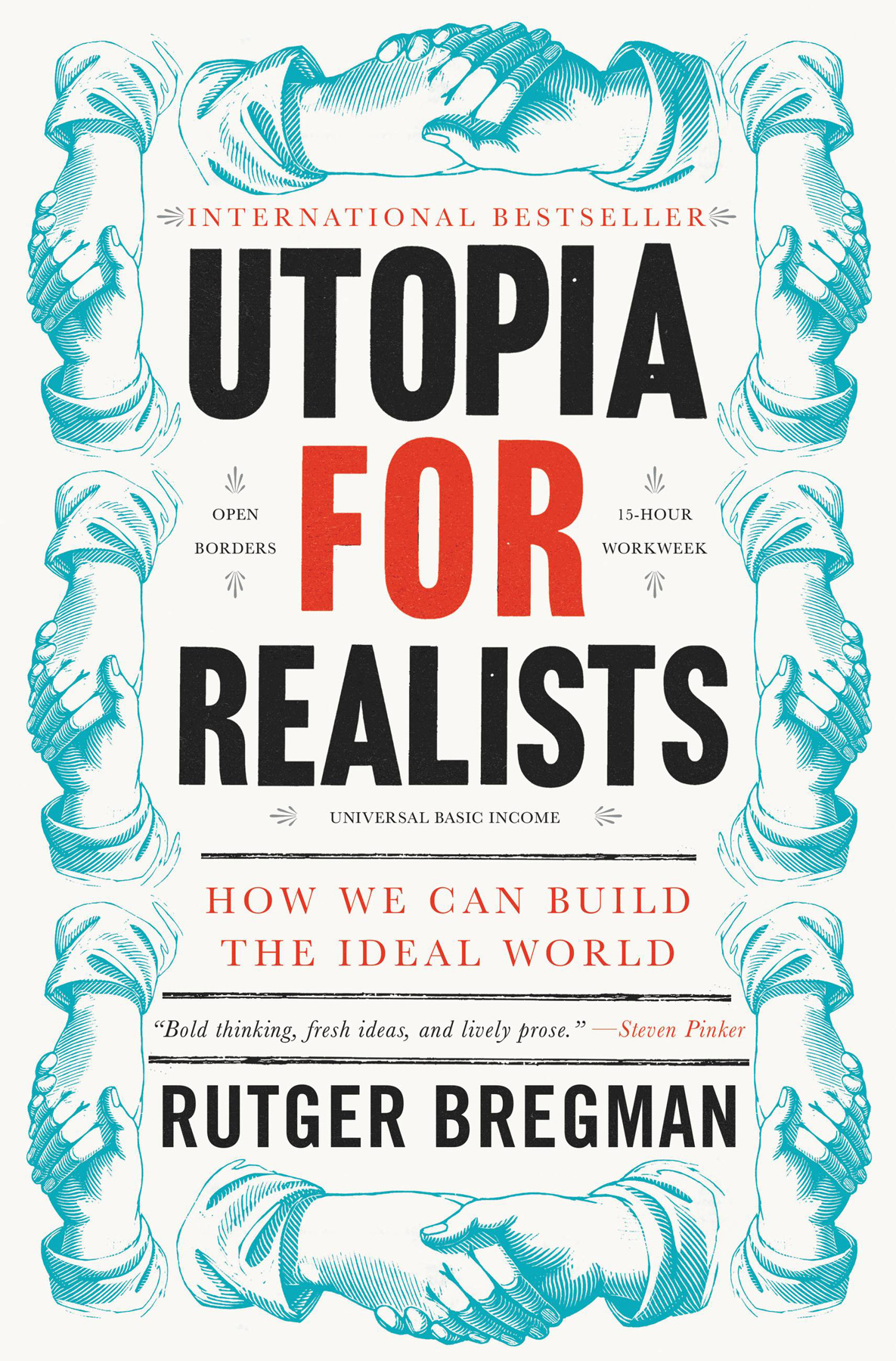Thank you for buying this ebook, published by HachetteDigital.
To receive special offers, bonus content, and news about ourlatest ebooks and apps, sign up for our newsletters.
Copyright 2014, 2017 by Rutger Bregman
English translation copyright 2016 by Elizabeth Manton
Infographics by Momkai
Cover design by Gregg Kulick
Cover copyright 2017 by Hachette Book Group, Inc.
Hachette Book Group supports the right to free expression and the value of copyright. The purpose of copyright is to encourage writers and artists to produce the creative works that enrich our culture.
The scanning, uploading, and distribution of this book without permission is a theft of the authors intellectual property. If you would like permission to use material from the book (other than for review purposes), please contact permissions@hbgusa.com. Thank you for your support of the authors rights.
Little, Brown and Company
Hachette Book Group
1290 Avenue of the Americas, New York, NY 10104
littlebrown.com
twitter.com/littlebrown
facebook.com/littlebrownandcompany
First ebook edition: March 2017
Published simultaneously in English in Great Britain by Bloomsbury Publishing, March 2017
Originally published in September 2014 in the Netherlands as Gratis geld voor iedereen: en nog vijf grote ideen die de wereld kunnen veranderen by The Correspondent (thecorrespondent.com), a member-funded journalism platform for independent voices.
Little, Brown and Company is a division of Hachette Book Group, Inc.
The Little, Brown name and logo are trademarks of Hachette Book Group, Inc.
The Hachette Speakers Bureau provides a wide range of authors for speaking events. To find out more, go to hachettespeakersbureau.com or call (866) 376-6591.
The publisher is not responsible for websites (or their content) that are not owned by the publisher.
ISBN 978-0-316-47190-9
E3-20170131-JV-PC
Praise for
UTOPIA FOR REALISTS
If youre bored with hackneyed debates, decades-old right-wing and left-wing clichs, you may enjoy the bold thinking, fresh ideas, lively prose, and evidence-based arguments in Utopia for Realists.
Steven Pinker, author of The Blank Slate and The Better Angels of Our Nature
Obligatory reading for everyone worried about the wrongs of present-day society and wishing to contribute to their cure.
Zygmunt Bauman, author of Consuming Life and Liquid Modernity
This book is brilliant. Everyone should read it. Bregman shows us weve been looking at the world inside out. Turned right-way out we suddenly see fundamentally new ways forward. If we can get enough people to read this book, the world will start to become a better place.
Richard Wilkinson, coauthor of The Spirit Level: Why More Equal Societies Almost Always Do Better
An excellent read and full of well-told stories and details I didnt know.
Tim Harford, senior columnist at the Financial Times and author of The Undercover Economist
Learning from history and from up-to-date social science can shatter crippling illusions. It can turn allegedly utopian proposals into plain common sense. It can enable us to face the future with unprecedented enthusiasm. To see how, read this superbly written, upbeat, insightful book.
Philippe Van Parijs, cofounder of the Basic Income Earth Network and author of Real Freedom for All
A wonderful call to utopian thinking around incomes and the workweek, and a welcome antidote to the pessimism surrounding robots taking our jobs.
Charles Kenny, senior fellow at the Center for Global Development and author of The Upside of Down: Why the Rise of the Rest Is Great for the West
A bold call for utopian thinking and a world without worksomething needed more than ever in an era of defeatism and lack of ambition. Highly recommended!
Nick Srnicek, coauthor of Inventing the Future: Postcapitalism and a World Without Work
The impact of this book in the Netherlands has been huge. Not only did Rutger Bregman launch a highly successful and long-running debate in the media, he also inspired a movement across the country that is putting his ideas into practice. Now its time for the rest of the world.
Joris Luyendijk, bestselling author of Swimming with Sharks: My Journey into the World of the Bankers
Utopia for Realists is an important book, a wonderfully readable breath of fresh air, a window thrown open to a better future. As politicians and economists are asking how to increase productivity, ensure full employment, and downsize government, Bregman asks: What actually makes life worth living and how can we get there? The answers, it turns out, are already there, and Bregman combines deep research with wit, challenging us to think anew about how we want to live and who we want to be. Required reading.
Philipp Blom, historian and author of The Vertigo Years: Europe, 19001914 and A Wicked Company: The Forgotten Radicalism of the European Enlightenment
If energy, enthusiasm, and aphorism could make the world better, then Rutger Bregmans book would do it. Even in translation from the Dutch, the writing is powerful and fluent. A boisterously good read.
John Rentoul, The Independent (UK)
History of Progress
To Maartje
A map of the world that does not include Utopia is not worth even glancing at, for it leaves out the one country at which Humanity is always landing. And when Humanity lands there, it looks out, and, seeing a better country, sets sail. Progress is the realization of Utopias.
Oscar Wilde (18541900)
L ets start with a little history lesson: In the past, everything was worse.
For roughly 99% of the worlds history, 99% of humanity was poor, hungry, dirty, afraid, stupid, sick, and ugly. As recently as the seventeenth century, the French philosopher Blaise Pascal (162362) described life as one giant vale of tears. Humanity is great, he wrote, because it knows itself to be wretched. In Britain, fellow philosopher Thomas Hobbes (15881679) concurred that human life was basically solitary, poor, nasty, brutish, and short.
But in the last 200 years, all of that has changed. In just a fraction of the time that our species has clocked on this planet, billions of us are suddenly rich, well nourished, clean, safe, smart, healthy, and occasionally even beautiful. Where 84% of the worlds population still lived in extreme poverty in 1820, by 1981 that percentage had dropped to 44%, and now, just a few decades later, it is under 10%.
If this trend holds, the extreme poverty that has been an abiding feature of life will soon be eradicated for good. Even those we still call poor will enjoy an abundance
For centuries, time all but stood still. Obviously, there was plenty to fill the history books, but life wasnt exactly getting better. If you were to put an Italian peasant from 1300 in a time machine and drop him in 1870s Tuscany he wouldnt notice much of a difference.
Historians estimate that the average annual income in Italy around the year 1300 was roughly $1,600. Some 600 years laterafter Columbus, Galileo, Newton, the Scientific Revolution, the Reformation and the Enlightenment, the invention of gunpowder, printing, and the steam engineit was still $1,600. Six hundred years of civilization, and the average Italian was pretty much where hed always been.


